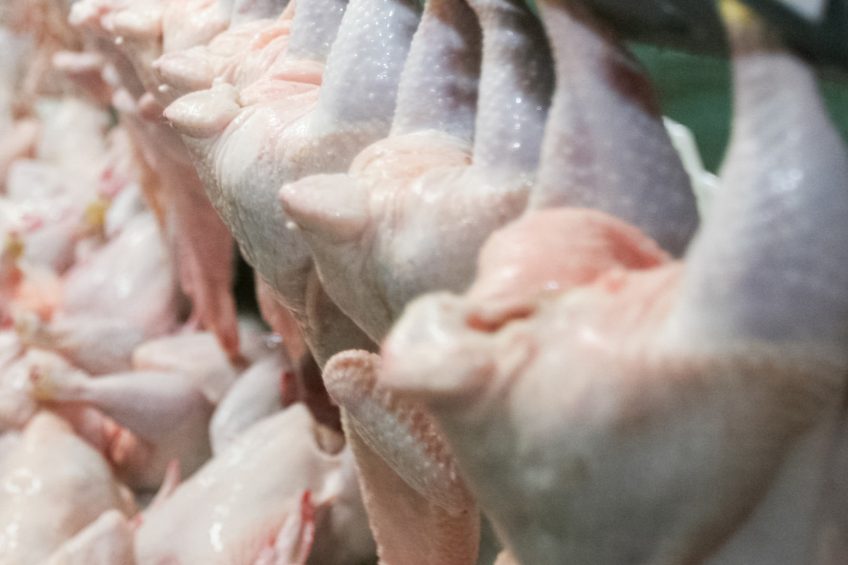US: Sanderson Farms profits drop

Sales and profits tumbled for third largest US poultry producer Sanderson Farms in its fiscal third quarter with the company facing not just a seasonal down-turn but also rising feed costs and a domestic glut of meat.
The figures, which were below market expectations, showed net sales for the third quarter of $852.4m compared with $931.9m for the same period a year ago. And the company reported net income of $11.5m or $0.50/share compared with $115.8m, or $5.09 per share for the same period.
Joe F. Sanderson Jr, Sanderson Farms chairman and chief executive officer, said the results reflected significant counter-seasonal weakness in market prices for boneless breast meat produced for food service customers.
“In fact, market prices for boneless breast meat, chicken breast tenders, boneless thigh meat, bulk leg quarters and jumbo wings produced at our plants that process a larger bird were all significantly lower this year when compared to last year’s third fiscal quarter.
“We believe the counter-seasonal softness is due, at least in part, to a lack of chicken promotions at both food service and retail grocery stores and an ample supply of competing proteins.”
But feed costs per pound of chicken processed during the third fiscal quarter were 5.8% higher compared to last year and were 7.7% up sequentially.
Prices paid for corn and soybean meal, the company’s primary ingredients, rose by 4.3% and 15.5% compared with the same period last year.
US Department of Agriculture statistics showed domestic stockpiles of poultry and frozen red meat were above 2.5bn pounds in July for the second straight month with volumes rising in recent months.
US stockpiles of chicken hit a record 888m pounds in June, according to the Financial Times.
This is due to the imposition of tariffs on US agricultural products by Mexico and China which have led to growing quantities of protein being left unsold. Tariffs have been put in place in the light of President Trump’s decision to impose tariffs on imports of steel and aluminium products.
Sanderson Foods is not the only US poultry company to have had a weaker period. Tyson Foods last month downgraded its earnings outlook, blaming tariffs, the meat glut and fears about future trade.












